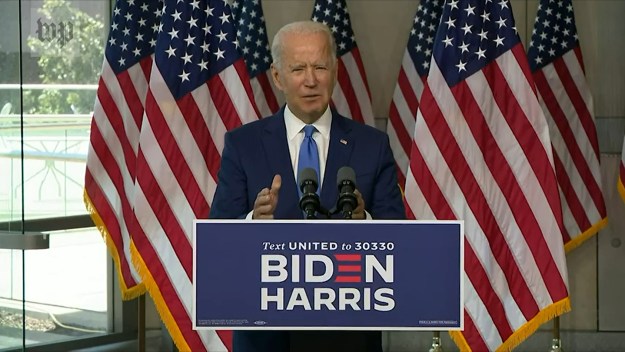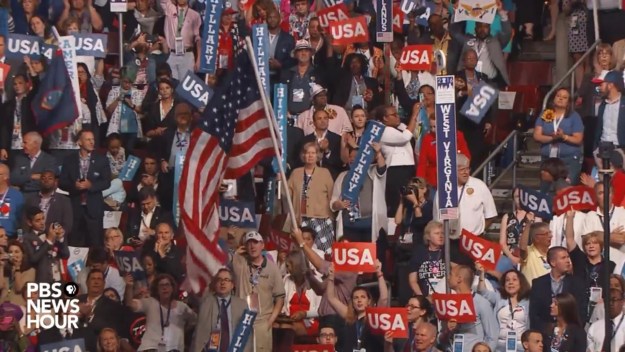
As I told you previously, such is my complacence with regard to the national government now, with Joe Biden as our president, that I forgot to watch his address to Congress last week.
Consequently, I certainly didn’t watch Tim Scott’s Republican “response.” You recall that I take a dim view of this “tradition” that we’ve had since 1966. It’s rather idiotic. First, it’s not a “response,” because it is written before the president’s address is delivered. It’s basically just a recitation of party talking points, with networks providing free air time. (And now, any national news outlet with a website providing live streaming.)
Here’s the thing: The Constitution requires the president to give Congress an update on the state of the union “from time to time.” He can do it with a scribbled note if he chooses to. But modern presidents have been happy to deliver it in person with much pomp. Fine. Let them do that, and I’m glad the networks are willing to broadcast it when they do. But if the other party wants such a platform as well, they should have to win the next presidential election. Democrats should have no expectation of free air time when the president is named Nixon, Ford, Reagan or Bush, and Republicans should have to sit it out when we have a chief executive named Carter, Clinton, Obama or Biden. Issue all the releases, tweets, etc., you want, and you will get some coverage. But expect no more.
Anyway, this wasn’t a State of the Union, technically.
But on to Tim Scott…
I’ve never had much occasion to say much about him. For one thing, I don’t know him — he rose to statewide prominence after I left the paper, and I’ve never met him, much less sat and talked extensively with him. Secondly, and more to the point, he hasn’t done much to attract attention, until quite recently. For years, I had trouble remembering his name, because it didn’t come up much. When people said “Senator Scott,” I tended initially to think they were speaking of John. Him I know.
It always seemed to me that Tim Scott was sort of maintaining as low a profile as possible — which of course set a stark contrast with our senior senator. South Carolina had elected him (after Nikki appointed him) when he hadn’t done much to attract attention, so he was sticking with the formula. All those white voters seemed pleased to have a black Republican senator, so they could tell everyone “See? We’re not racist!” And that was the sum of his effect on state politics. Why rock that boat by doing or saying anything that drew attention?
That has changed recently, starting with his appearance at the GOP convention last year. For me, it was almost an introduction to Tim Scott. Not only had I never met him, I’d never heard him speak for several minutes at a time.
I formed two impressions:
- He seemed like a good and decent man, quite sincere.
- He was undermining, even canceling out, all that decency by using it to support the reelection of the man who was by far, by light years, the worst person ever to hold the office.
Anyway, as I said, I missed his recent “response” speech (although I’m listening to it as I type this). But I saw some of the responses to it, which seemed to all center on this passage:
When America comes together, we’ve made tremendous progress. But powerful forces want to pull us apart. A hundred years ago, kids in classrooms were taught the color of their skin was their most important characteristic. And if they looked a certain way, they were inferior.
Today, kids again are being taught that the color of their skin defines them, and if they look a certain way, they’re an oppressor. From colleges to corporations to our culture, people are making money and gaining power by pretending we haven’t made any progress at all, by doubling down on the divisions we’ve worked so hard to heal.
You know this stuff is wrong. Hear me clearly: America is not a racist country. It’s backwards to fight discrimination with different types of discrimination. And it’s wrong to try to use our painful past to dishonestly shut down debates in the present….
I read, for instance, two views in The Washington Post.
The first was actually a step removed from Scott and what he had said. It was headlined, “Kamala Harris has to walk a tightrope on race. This time, she slipped.” This was in response to the vice president having agreed with Sen. Scott on the point that seemed to disturb “woke” Democrats the most. She said “No, I don’t think America is a racist country.” The writer of the column — one Karen Attiah, whom I had to look up because I wasn’t familiar with the name — tried to make excuses for the veep, but nevertheless she “slipped,” leading the writer to conclude:
And especially for women of color, it is exhausting to watch Harris have to walk on the all-too-familiar tightrope of race and gender. Perhaps, in time, Harris will get more space to shine as the administration progresses. Until then, we are all holding our breath.
Yeah, OK. The other piece was by South Carolina’s own Kathleen Parker, and it was headlined, “Liberals just cannot handle a Black conservative,” employing the Post‘s unfortunate recent style of capitalizing references to people’s race. OK… Such an assertion seems more like something that you’d hear on Fox than from such a normally sensible woman as Kathleen. But I suppose that is one way of putting it, since people were calling him “Uncle Tim” on social media. An excerpt:
This, my friends, is (also) what racism looks like in America today.
Let a Black man speak for the GOP; let him defend conservative values that were once considered mainstream; let him challenge the current orthodoxy of systemic racism that pegs Whites as oppressors — and he will feel the wrath of those for whom, as Scott said, belief in racism is essential to political power….
There’s that capitalizing-race thing again. I’ll post about that some other day. (“Capitalizing “Black” bugs me, and capitalizing “White” is just plain offensive. It’s like we’re back to separate restrooms, and they want to make sure the labels pop out so nobody goes into the wrong one.)
For the time being, I responded to the Attiah piece with this tweet:
What nonsense. She didn’t “slip.” She spoke as a vice president of the United States, not as vice president of “some country that I despise.” https://t.co/euGiFG5ZBO
— Brad Warthen (@BradWarthen) May 1, 2021
If she hadn’t answered that way, I think we’d need to have a long conversation about it. But she did, as anyone a heartbeat away from the presidency should. And I see that Jim Clyburn also spoke in agreement with what Scott said.
So, nothing to see here, folks.
As for the Parker piece, I just tweeted it out.
What are your thoughts?



















